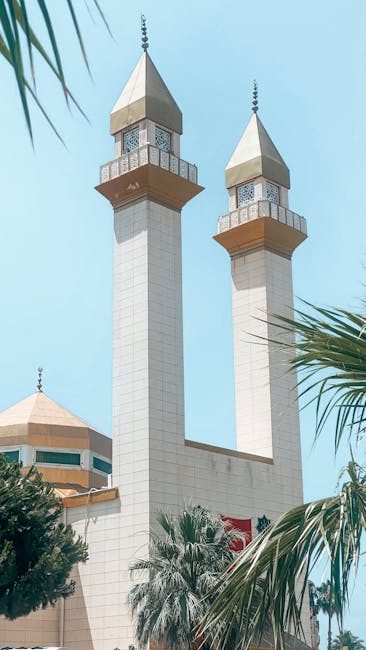Oba Femi: A Legacy of Leadership, Tradition, and Modernity in Yoruba History
Oba Femi, a name that resonates with power, tradition, and a touch of modernity, represents a significant figure in the rich tapestry of Yoruba history. While the specific Oba Femi you’re interested in might vary depending on the context (as the title ‘Oba’ denotes a king and many have held this position throughout history), this article delves into the characteristics, challenges, and contributions typically associated with Obas holding this prestigious title, using historical examples to illustrate the multifaceted nature of their roles.
The Role of an Oba: More Than Just a Monarch
The position of Oba in Yoruba culture transcends mere monarchy. An Oba is not simply a ruler; he’s a spiritual leader, a custodian of tradition, a judge, a mediator, and a symbol of unity for his people. His decisions impact every aspect of life within his kingdom, from economic policy to social customs and religious practices. The authority vested in an Oba is deeply intertwined with the intricate web of Yoruba beliefs and social structures. This power is not solely political; it is spiritual, rooted in the belief in the Oba’s connection to the ancestors and the divine.

Spiritual Significance of the Oba
Many Yoruba Obas are considered semi-divine figures, believed to be intermediaries between the spiritual and physical realms. Their lineage is often traced back to the mythical founders of their kingdoms, lending an aura of sanctity to their position. Rituals and ceremonies, many steeped in centuries of tradition, play a crucial role in maintaining the Oba’s spiritual authority and connection to his people. These rituals reinforce the social order and provide a sense of continuity and stability.
The Oba as a Judge and Mediator
Historically, Obas served as the ultimate arbiters of justice within their kingdoms. Their decisions, often based on customary law and tradition, were respected and obeyed. This role extended beyond mere legal judgments; it involved mediating disputes, resolving conflicts, and maintaining social harmony. The Oba’s ability to resolve conflicts peacefully was crucial for the stability and prosperity of his kingdom. His wisdom and impartiality were essential qualities for maintaining social order.

Challenges Faced by Modern Obas
While the traditional role of the Oba remains relevant, modern Obas face unique challenges in the 21st century. The pressures of modernization, globalization, and evolving social norms test the traditional structures of power. Obas must navigate the complexities of balancing tradition with the demands of a rapidly changing world. The need to adapt to contemporary issues such as economic development, education, and healthcare while preserving cultural heritage is a constant balancing act.
Balancing Tradition and Modernity
The challenge lies in adapting traditional governance structures to meet the needs of a modern society. Obas are often called upon to lead their communities in navigating the complexities of modern governance, while simultaneously upholding the cultural heritage that defines their identity. This requires a delicate balancing act, demanding both political acumen and a deep understanding of the traditions they represent.
Economic Development and the Oba
Economic development presents another significant challenge. Obas are expected to play a role in fostering economic growth and improving the livelihoods of their people. This necessitates engaging with international development organizations, attracting investment, and promoting sustainable development strategies. Balancing economic progress with the preservation of cultural heritage requires careful planning and strategic partnerships.
The Legacy of Oba Femi (Illustrative Examples)
To illustrate the multifaceted role of an Oba, let’s consider hypothetical examples of achievements and challenges faced by an Oba named Femi across various historical periods. Note that these are illustrative examples and not specific historical accounts of a particular individual.
Oba Femi: A Defender of Tradition (Hypothetical Example)
In one historical context, imagine an Oba Femi who steadfastly defended traditional Yoruba practices and values against the encroachment of colonial powers. His leadership in preserving cultural heritage and resisting assimilation could be seen as a crucial contribution to the enduring strength of Yoruba culture.

Oba Femi: A Modernizer and Reformer (Hypothetical Example)
In another scenario, consider an Oba Femi who embraced modernization and reform. He might have championed education, introduced new agricultural techniques, and advocated for improved infrastructure. His willingness to adapt to changing times while upholding traditional values would showcase his leadership in navigating the complexities of the modern world.
Oba Femi: A Peacemaker and Unifier (Hypothetical Example)
Finally, we can imagine an Oba Femi who played a pivotal role in mediating conflicts, unifying disparate factions, and fostering social harmony within his kingdom. His ability to resolve disputes, promote cooperation, and build consensus would highlight the importance of the Oba’s role in maintaining social stability and prosperity.
Conclusion: The Enduring Relevance of the Oba
The legacy of Obas like the hypothetical Oba Femi, and all those who have held this title throughout history, is a testament to the enduring importance of leadership, tradition, and adaptability. The role of the Oba remains a complex and evolving one, constantly adapting to the demands of a changing world while preserving the rich cultural heritage of the Yoruba people. Understanding the role of the Oba provides valuable insights into the history, culture, and social structures of the Yoruba people, a legacy that continues to shape their lives today.
- Further Research: To delve deeper into specific historical accounts of Obas named Femi or other historical figures in Yoruba history, consult academic journals, historical archives, and reputable online resources.
- Cultural Sensitivity: Approaching the study of Yoruba history and culture requires cultural sensitivity and respect for the traditions and beliefs of the Yoruba people.

